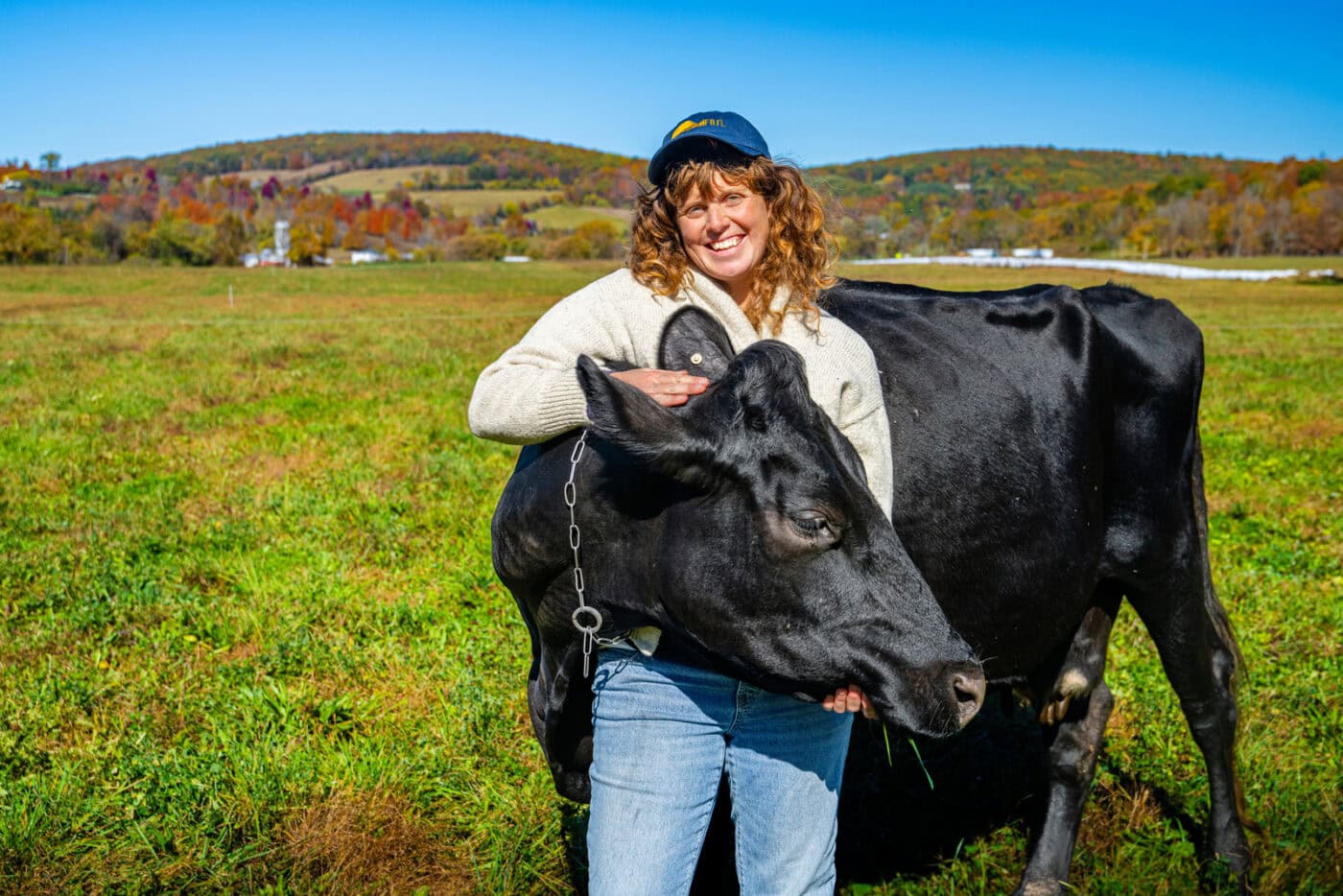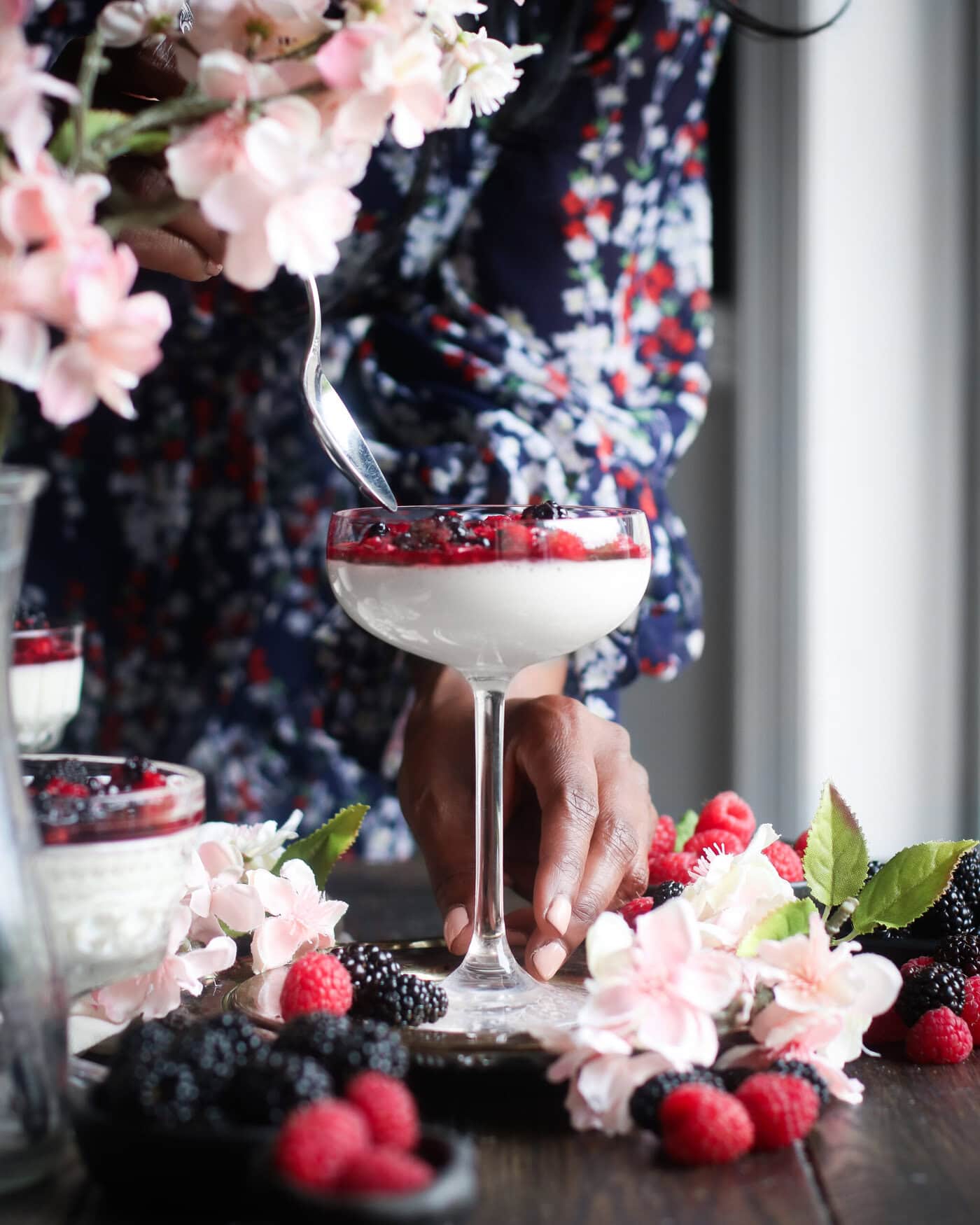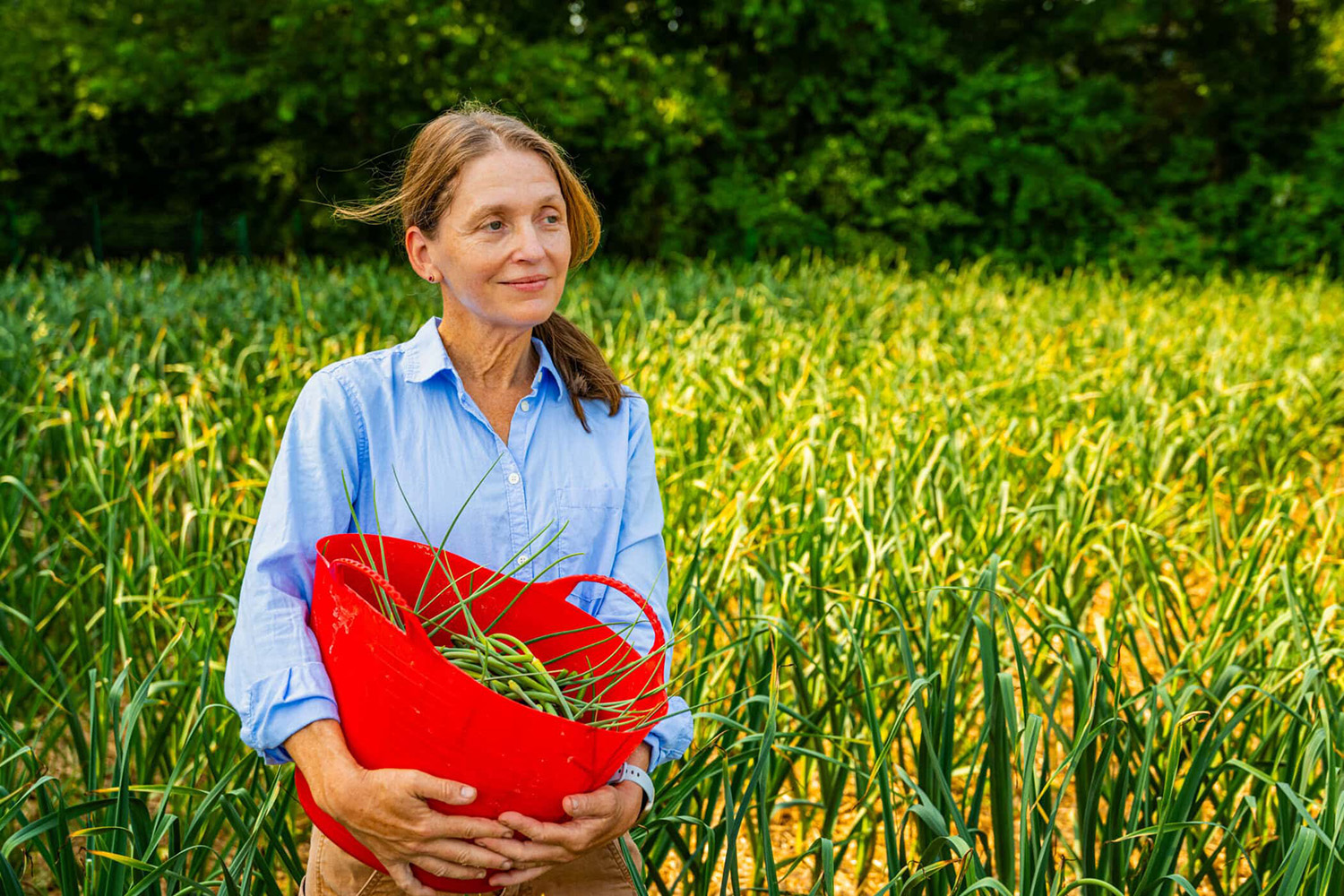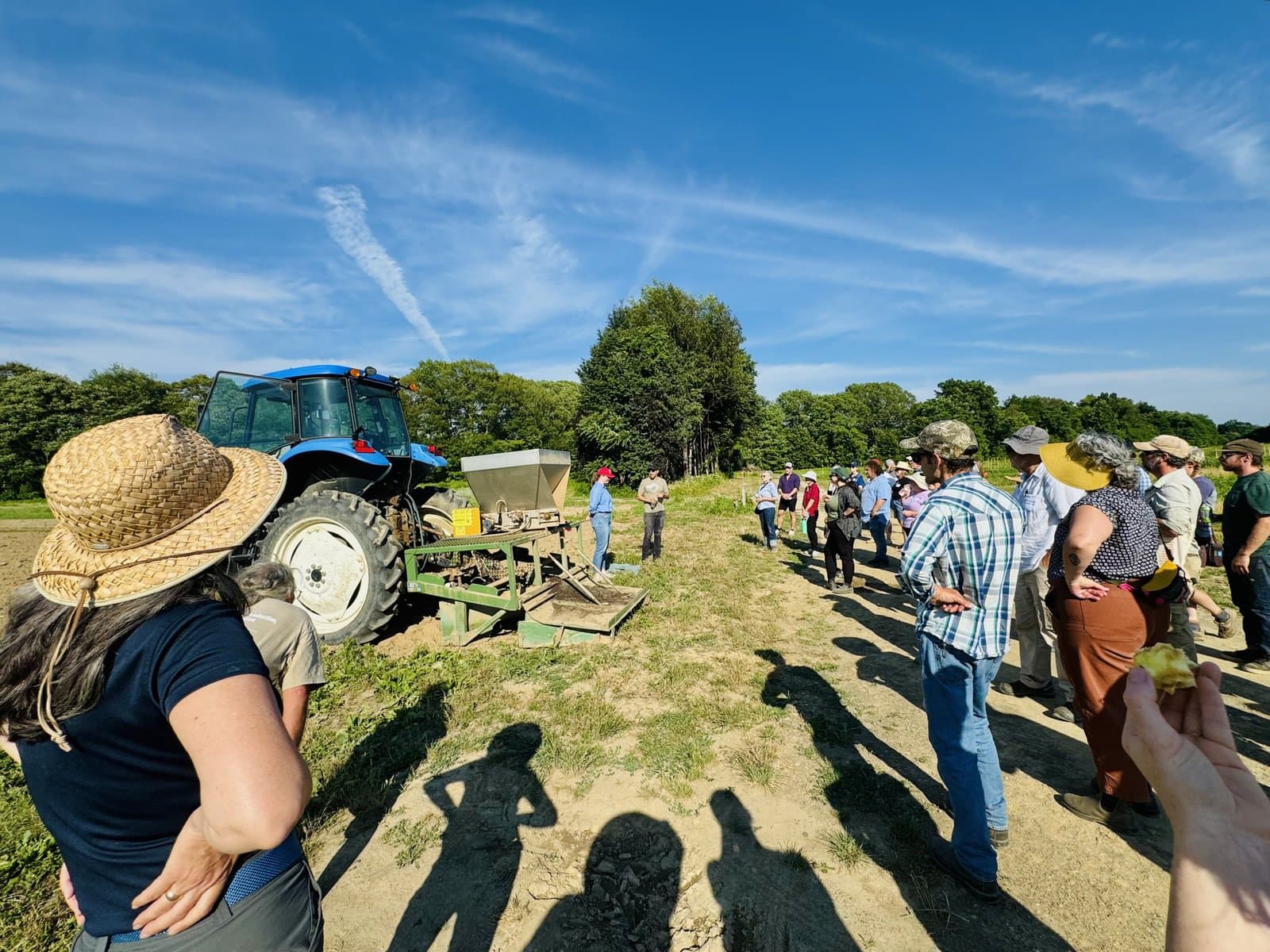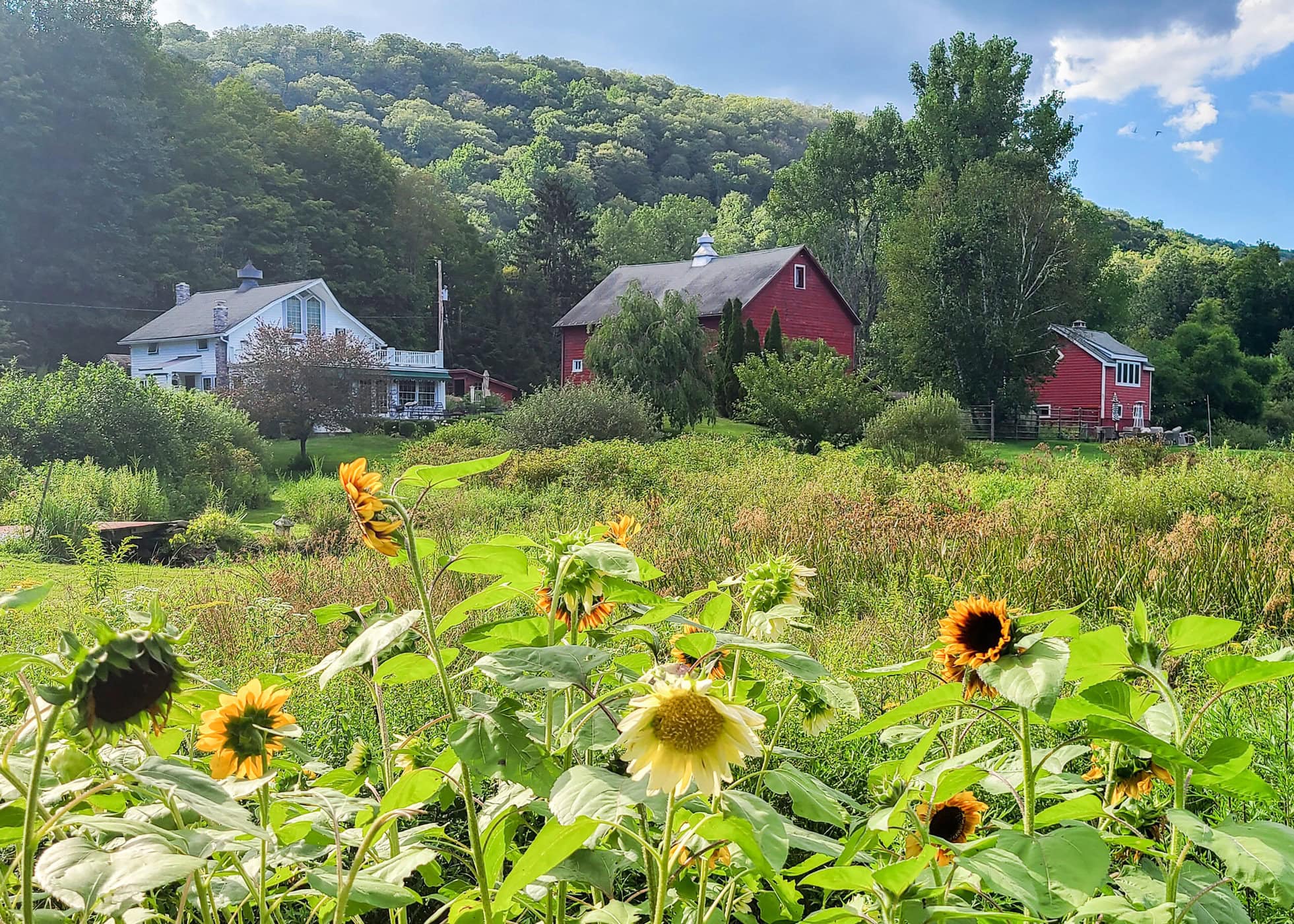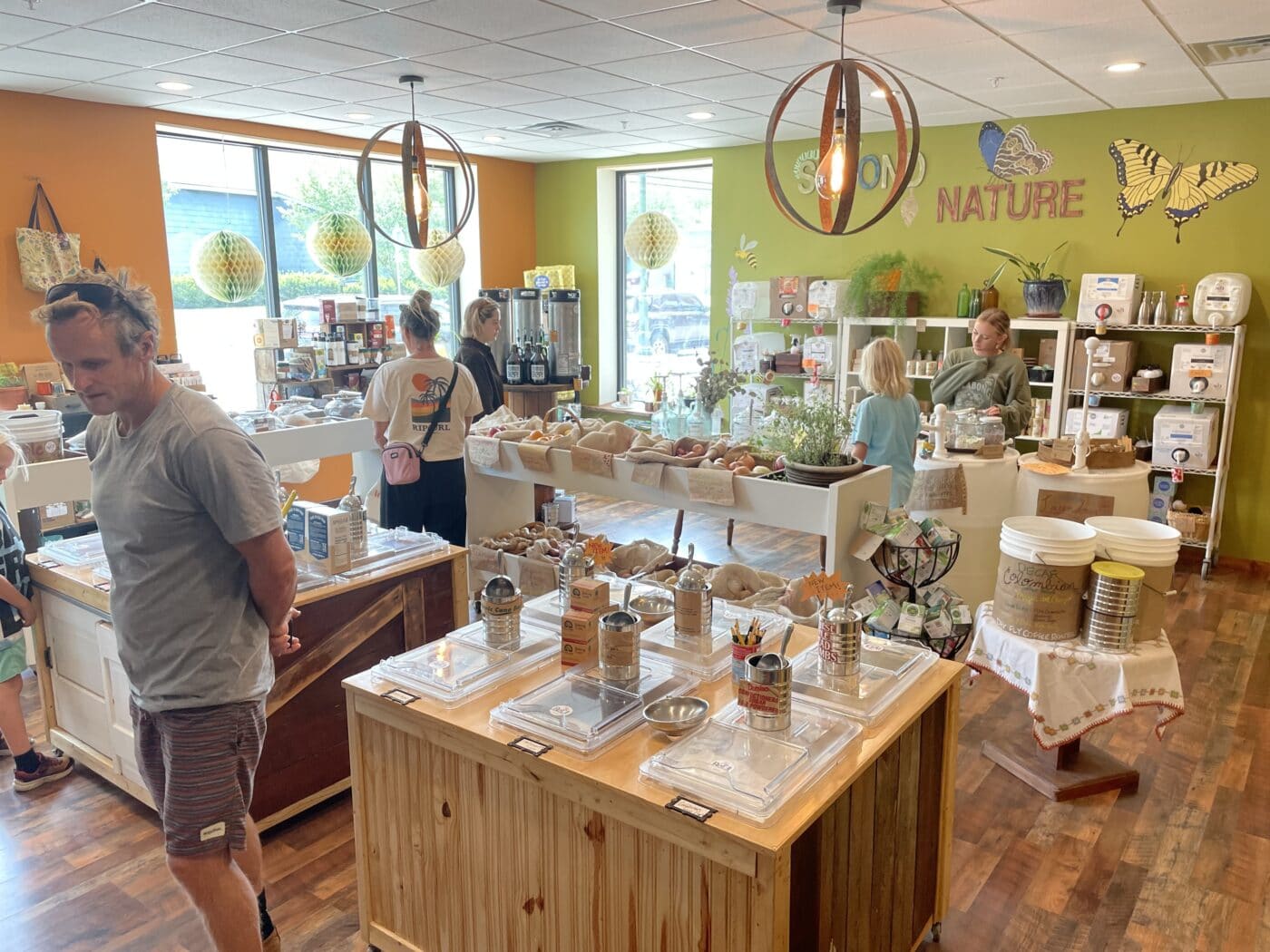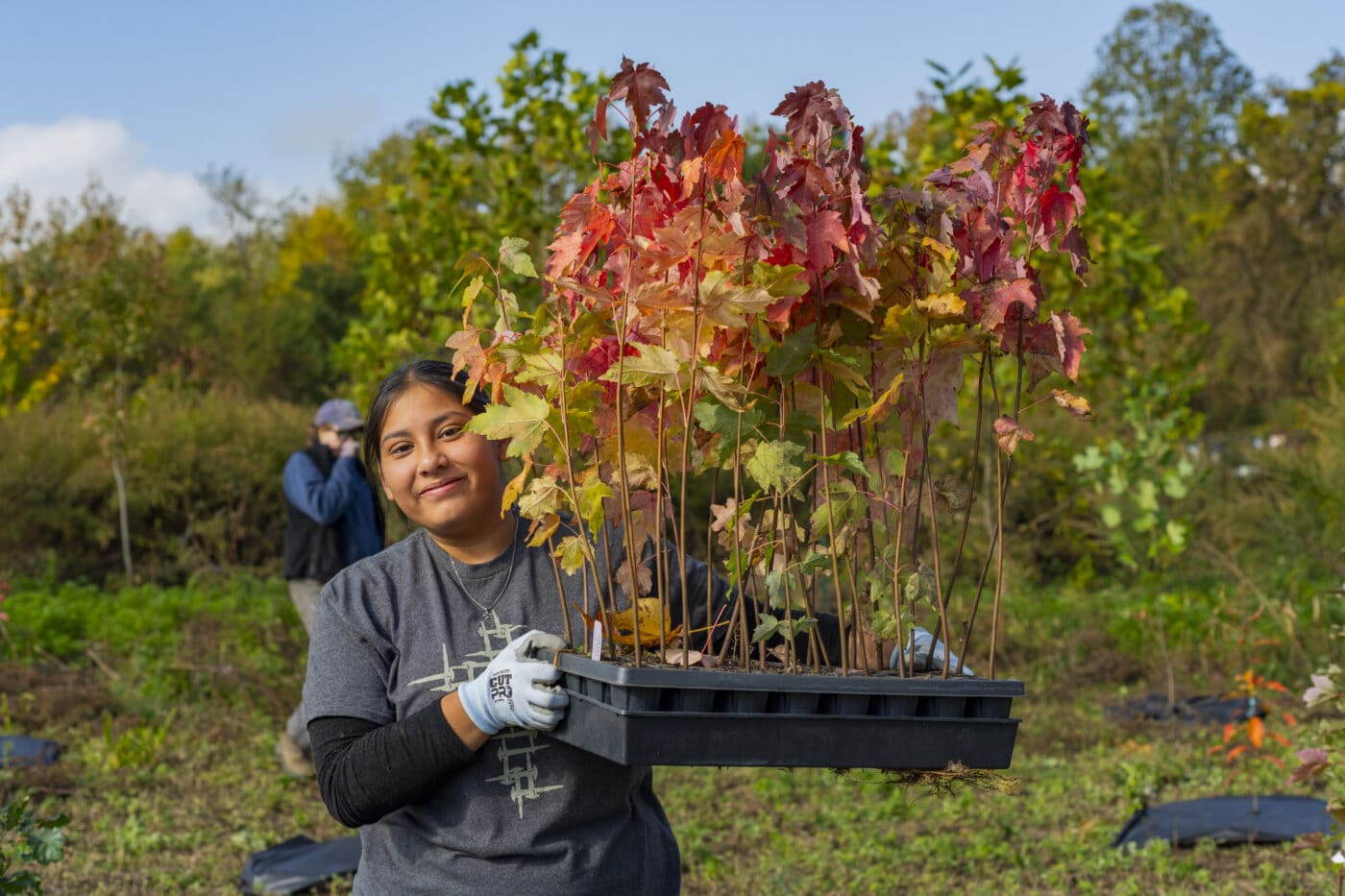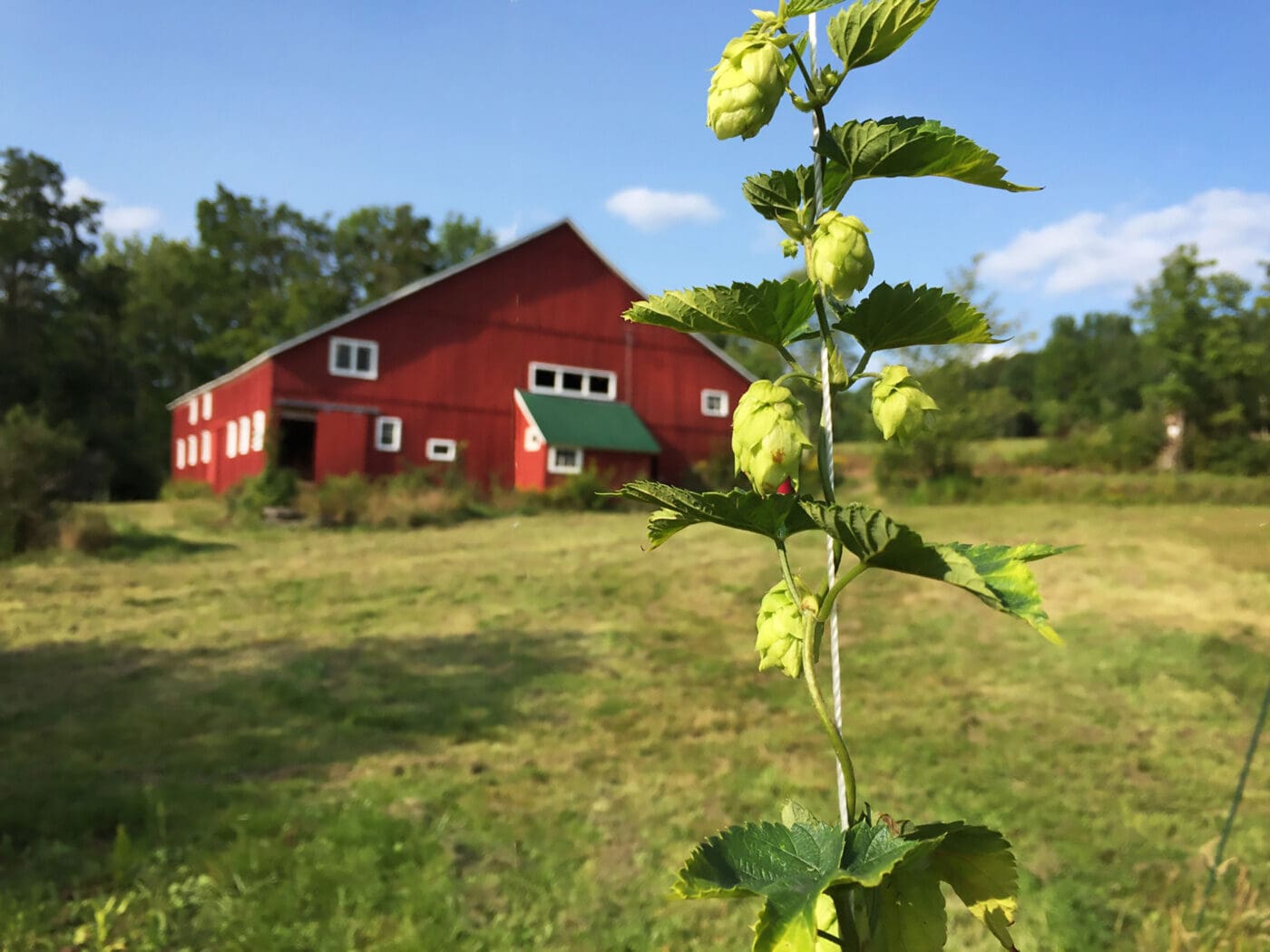Amy Hepworth grew up on a Milton fruit farm that had been in her family since 1818. She and her four siblings “were involved in everything,” she remembers. “We packed cherries and picked currants when we were 5 or 6 years old. It was a way of life.”
After her father left in 1972, Hepworth’s mother took over the farm, which by that point focused heavily on selling apples to supermarkets nationwide. “She didn’t sign up for this life,” Hepworth says. “She went to Ithaca to study music education. She never complained — she was a very dutiful person. But it wasn’t easy. She was often the only woman at the local farm bureau meetings. It took her a while to be respected.”
The face of farming has changed. Since the 1970s, the number of farms led by women in the United States has tripled. Nationwide, they now own about 14% of all farms. By and large, farming remains a family business, but the long-held assumption that the oldest son will automatically take over the reins from Dad has also started to shift.
Case in point: It was Amy Hepworth — and not her one brother or three sisters — who after graduating from Cornell University in 1982 with a degree in pomology (the study of fruits) returned to assume control of the farm’s daily operations. “The farm was a hard place to exist,” she says. “All my siblings joked that they had PTSD from living here. My one brother had no interest. But I’ve always wanted to feed people.”
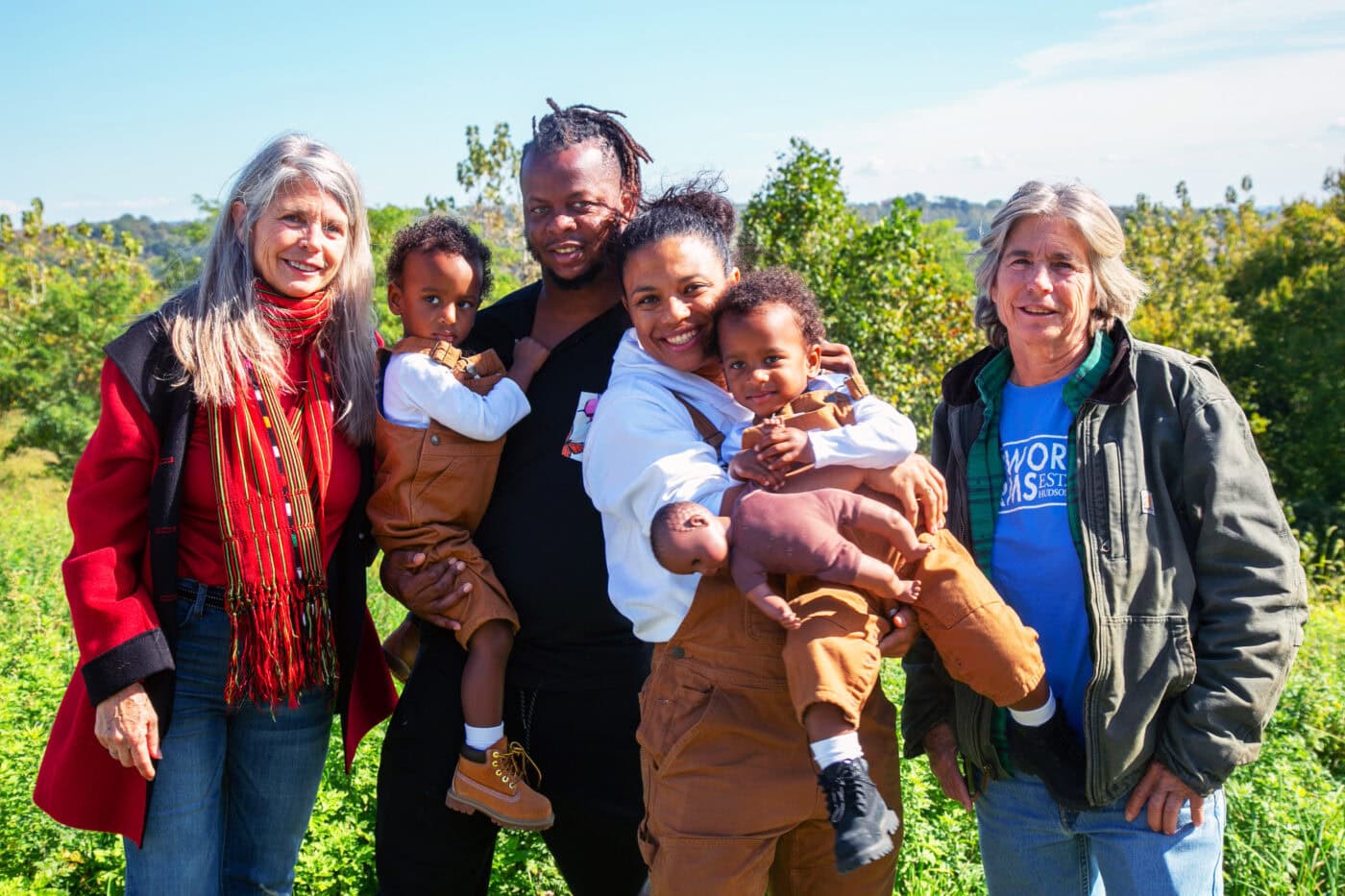
With lots of experimentation and a passion for sustainable agriculture, Hepworth transformed the fruit farm into a 500-acre organic vegetable powerhouse. In 2008 her twin sister, Gail, ditched her 25-year career as a biomedical engineer to join the family business. “It was Amy’s talent and the growing demand for her produce,” Gail Hepworth says.
Today, Hepworth Farms grows more than 400 vegetable varieties and is one of the largest growers of organic tomatoes in the Northeast. The famed Park Slope Food Coop in Brooklyn gobbles up almost one-third of everything the farm produces, but they also distribute their coveted veggies to more than a dozen CSAs, farmers markets, and a wide variety of supermarkets and restaurants throughout the Northeast. In 2023 they added cannabis into the mix. “You’ve got to keep trying new things,” Gail Hepworth says.
Amy Hepworth points out that women have always been intricately involved in farming. “We just didn’t get the title,” she says. “But I can assure you that behind most male farmers, there’s a good woman who is absolutely essential to the function of every single thing that happens on the farm. She can hop on a tractor, but she’s often doing most of the housework and childcare, too.”
The 2022 Census of Agriculture reported that more than 40% of new farmers are now women. That’s no surprise to Amy Hepworth, who notes that many traits traditionally associated with women play well on the farm. “Women are more sensitive to people; we have more patience. So you can lead by example” she says. “There’s things about farming that men are really good at, and there’s things about farming and business that women are really good at. Together, it’s a perfect combination.”
The Hepworth sisters’ philosophies go far beyond just growing food — they want to grow relationships and feed more people. “Our mission is to get food to as many people as possible. So we’re tweaking our model and working with nonprofits and the government,” Gail Hepworth says.
The nurturing relationships they have with their own workers sets the tone for everything they do. “Amy meets with her team every morning and does breathing and stretching exercises. And then they talk,” notes Gail Hepworth, adding that their mother also cared deeply for the farm workers. “She allowed a group of Jamaican workers to retire on the farm long after other farms would have discarded them.”
From Studying Gender to Flipping the Script
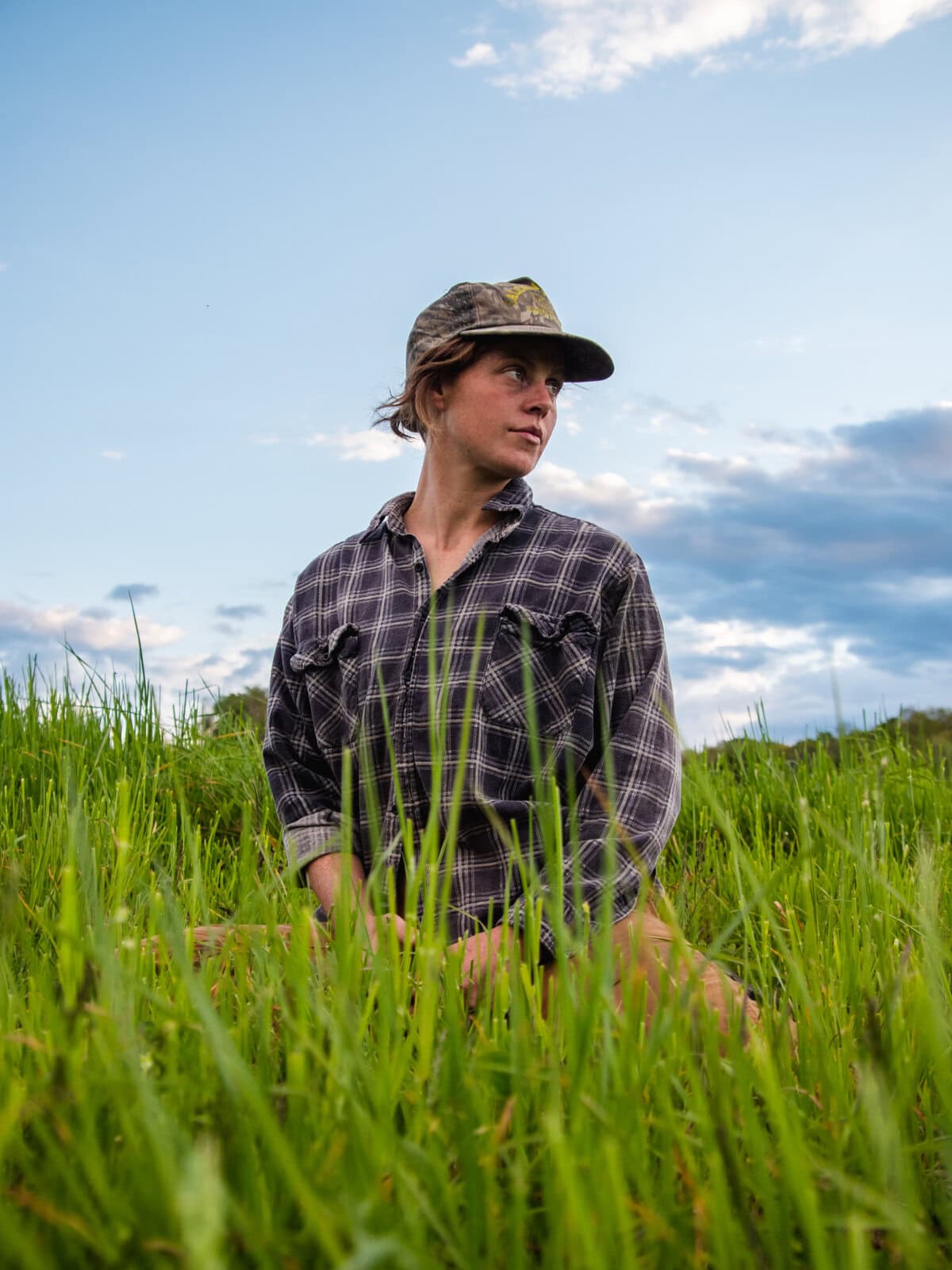
Sarah Chase enjoyed growing up on her family’s dairy farm in Pine Plains. “The school bus would drop me off at the field and I’d hang out with the cows. I trained them to be show animals at the fair and fell in love with them,” she says, adding that she started milking the cows for money when she was 12.
Still, Chase didn’t expect to take over the farm. “Nobody was pushing me to do that,” she says. But after graduating from college, a gender studies degree in hand, her interest in agriculture blossomed again. By this point, her father had already retired and the person who had taken over was looking to step away. She decided to go for it. “I think, to some degree, all farm kids feel some pressure to take over the farm or at least to protect it somehow,” she says. “It’s such a big part of the family mythos.”
Chase’s father had mixed feelings about her new career plans. On the one hand, he was thrilled that the farm, started by his own father, would continue. On the flip side, he was concerned. “The job was really physically taxing on him; he needed both of his knees and both of his shoulders replaced,” she says.
“I knew that the way my father had run the farm was no longer economically viable,” Chase says. “So I started learning about organic farming and a hundred percent grass fed dairying and direct sales. I also focused on my interest in the environment. I put all that together and made a business plan.”
Today at Chaseholm Farm, Chase raises beef cows and hogs, which are 100% grass-fed — “no grain, no soy, nothing,” she says. All the meat is sold at a CSA and a small shop on the farm, which is now certified organic. The milk is sold to Chase’s brother, Rory, who makes artisanal cheese at the property. “We have two separate businesses, but we’re both here, sharing ideas and supporting each other,” she says. “It feels super-solid to do this with family.”
It took years for Chase to transition to the current holistic model, which focuses on how grass-fed beef spread their manure, which in turn, fertilizes the soil. “I didn’t take a day off for seven years,” she says. “I worked 80-hour weeks for a long time.” But she also believes that quality of life for both humans and animals on the farm is important. To that end, she recently started having the cows milked only once a day. “What an impact this has had for all the workers. It’s given everybody some breathing room,” she says.
Chase didn’t experience any negative reaction to being a woman in agriculture. “I grew up in an extended culture of dairy farming in this area,” she says. “But many of those farms don’t exist anymore, so I think everyone was just excited that I was going to keep it going. I got so much support from the community.”
Staying Firm on the Farm
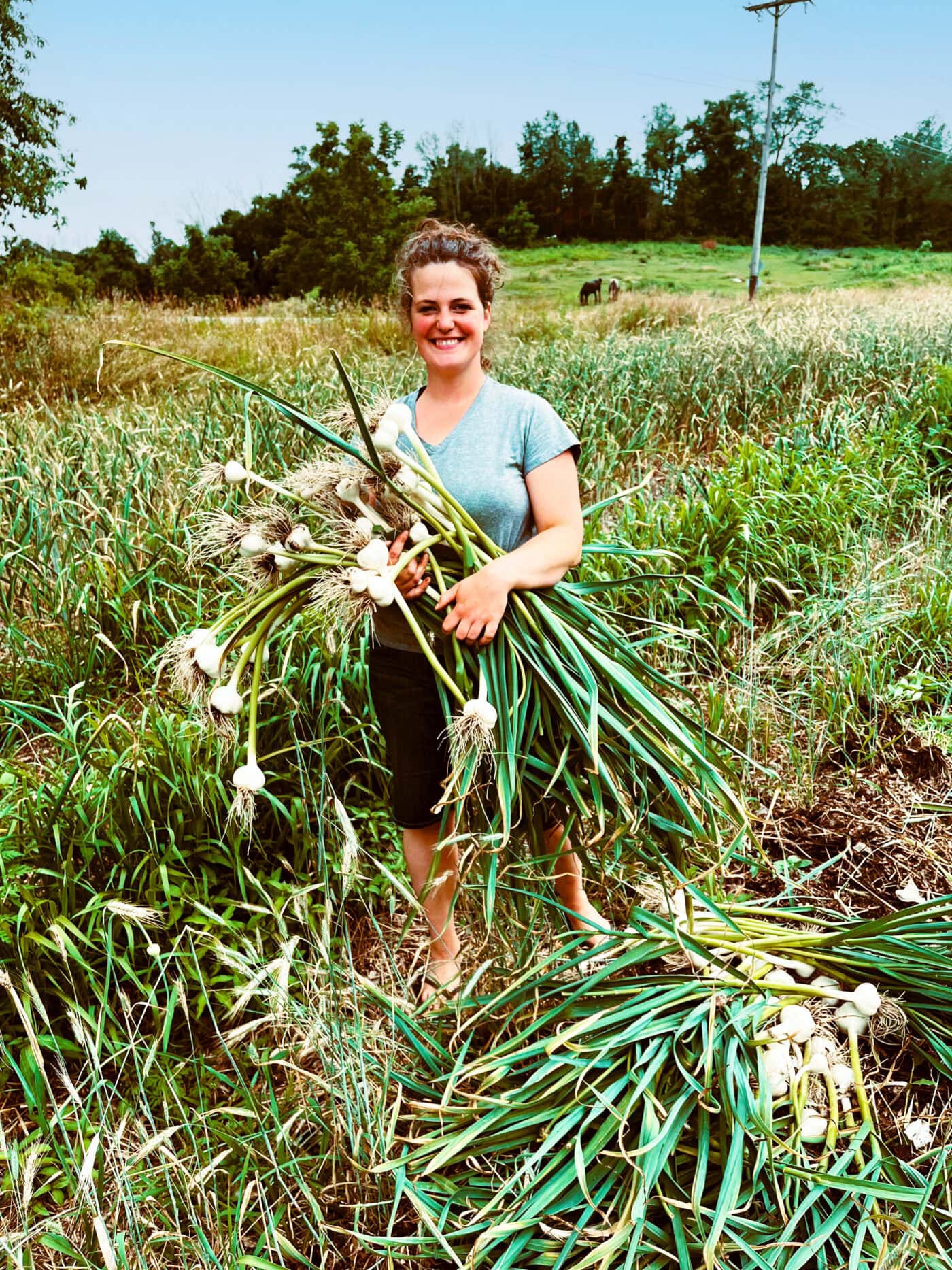
Trish Southway grew up on a dairy farm in Otisville with her parents and five siblings. When Southway was 10, her father transitioned to livestock. She loved the farming life. “I always knew that I wanted to be outside and that I wanted animals. I was always the one in the barn late at night waiting for babies to be born,” Southway says. “Everybody knew that out of all the kids that I was going to be the farmer.”
When Southway was 9, her dad helped her start selling chickens. “My first year, I was so scared,” she remembers. “My dad told me to set my price — $7 per chicken — and stick with it. When a guy told me he’d give me $25 for 5, I said, no. He walked away, but I learned so much from that and how to take the good with the bad.”
After high school, Southway began growing and selling vegetables; the operation grew so quickly she couldn’t keep up with demand. She opened her first farm stand, called it the Farmer’s Daughter, and had to keep moving into larger spaces, even though her business was only open on Saturdays.
Around this time she married Matt, whom she had first met at a wedding when she was 13 years old. “Of course our first conversation was about dairy farming,” she recalls. A few years later the couple decided to “go big,” and with the help of Scenic Hudson and the Orange County Land Trust, they purchased a 197-acre farm. Today, they grow fruits and vegetables and raise beef, pork, chicken, and sheep. The Farmer’s Daughter Farm Stand is open every Saturday from May until Thanksgiving. And this year, for the first time, they added a self-serve stand at the farm. “Maybe 30 people a day are coming by, picking up eggs or meat or whatever we put out there,” she says.
The farm abuts her father’s plot, where he raises a large herd of black Angus cows. “We talk a couple of times a day and bounce ideas off of each other,” she says.
The couple’s three homeschooled kids, all under 10, are tied into every aspect of life on the farm. “My 10-year-old son has his own tractor and his own meat rabbits. I would love if they all wanted to expand in their own way here at this farm,” Southway says. “If they don’t, that’s fine. But one of them could take a field and grow vegetables. Somebody could start milking cows again. There’s just so many possibilities.”


